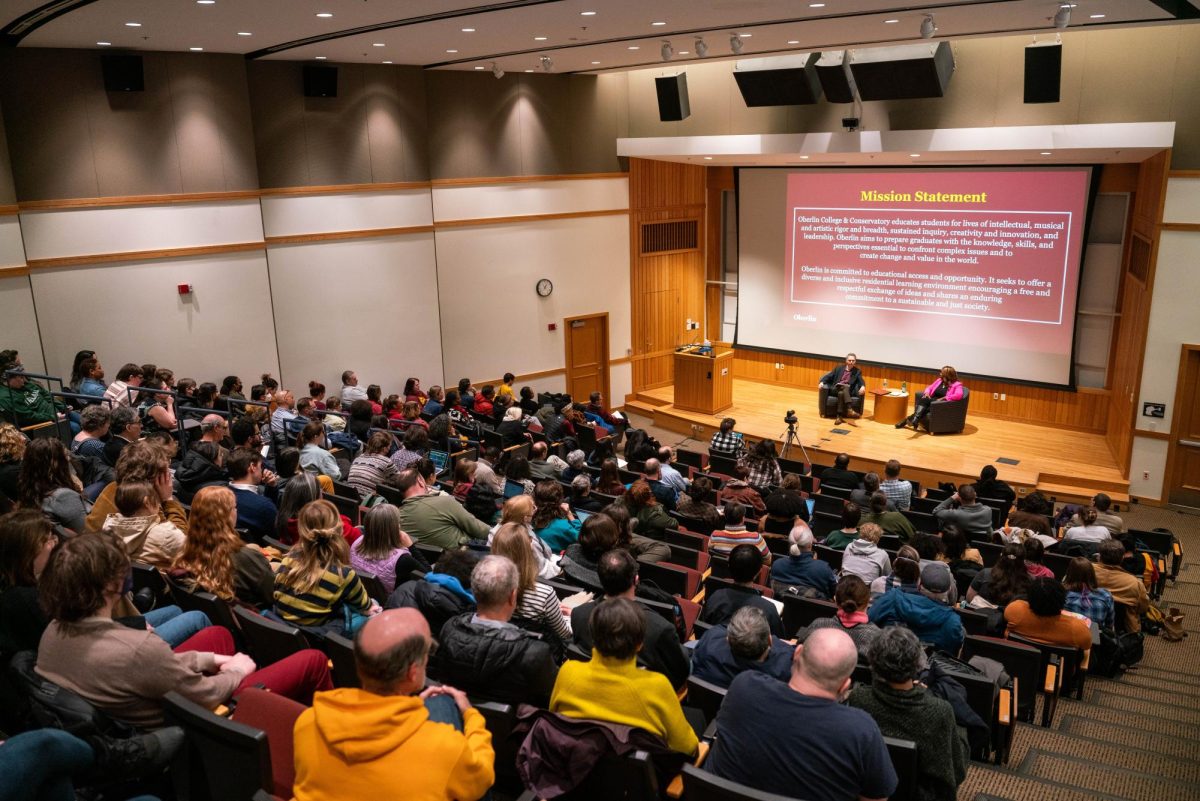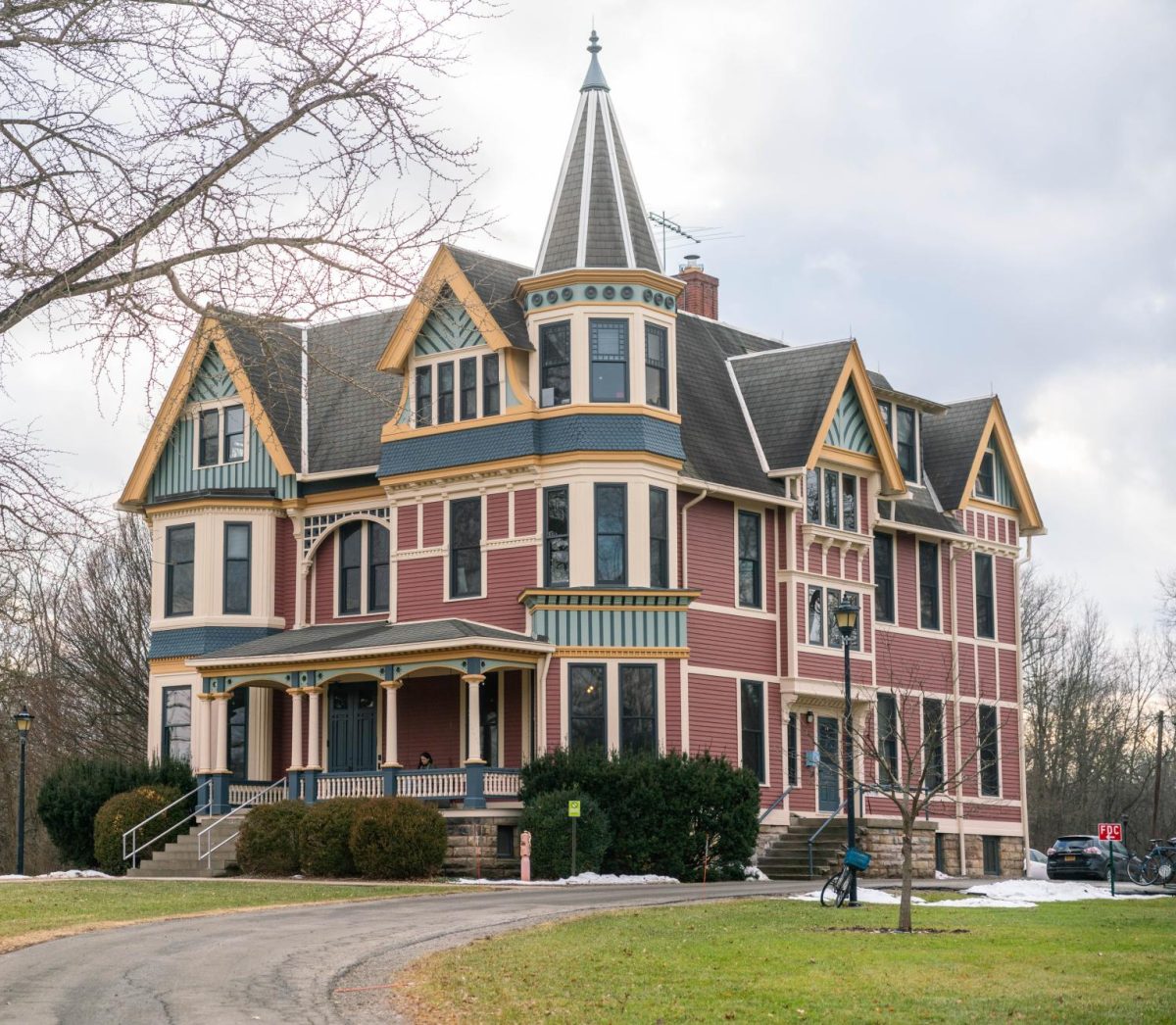President of Right to Work Foundation Speaks on Union Legislation
October 12, 2012
Mark Mix, president of the National Right to Work Legal Defense Foundation and the National Right to Work Committee, spoke in favor of right-to-work laws and on the importance of individual liberty in the workplace Tuesday in West Lecture Hall. Some 25 people attended the lecture, which was sponsored by the Oberlin College Republicans and Libertarians as part of the Ronald Reagan Lectureship Series.
In the Q and A session following the lecture, audience members expressed views mostly contrary to Mix’s.
The Foundation offers free legal aid to “defend employees against the abuses of the call of unionism” while the Committee promotes right to work laws across the country. Right-to-work laws ban the practice of requiring non-union workers to pay a fee for benefits they receive from the union’s work. There are currently 23 states with right-to-work laws. A ballot measure on right-to-work will be on the Ohio ballot in November 2013.
Mix argued that forcing non-union workers to pay this agency fee violates theirindividual liberties.
“The question is, does federal policy allow the union officials to speak on someone’s behalf who did not vote for them, did not ask for them and did not want them,” said Mix. “That’s really the initial injustice under the law.”
The Foundation has argued 15 cases in front of the Supreme Court, including Knox v. Service Employees International Union, which the Foundation won last June. The decision declared that charging a “political fight-back fund” fee for union and non-union members alike was illegal.
“The court said that it was wrong to be taking money from non-members for purely political reasons and use it for causes that they would object to,” Mix said. “I think all of us can agree with that philosophy — that no one should be forced to support an ideological cause simply because we have one more member than you in our so-called democratic institutions.”
Mix argued that unions in right-to-work states are in fact stronger than in states that allow agency fees.
“Anyone here who says that … right-to-work laws are anti-union is just wrong,” Mix said. “States who have right-to-work laws, how can their union density number be higher? I would suggest that unions are doing a good job in those states to convince workers that … they’re doing a good job and to pay for those services that unions provide.”
In the question and answer session following the talk, audience members largely challenged Mix’s assertions. Mix said that he welcomed such dialogue.
College junior Alice Beecher, co-chair of the Student Labor Action Coalition, contested the idea that right to work laws do not harm unions and emphasized the relationship between income inequality and the strength of unions.
“You’re rejecting the analysis that right to work laws bust unions,” she said. “But statistically this doesn’t make sense. … right-to-work states have [unionization] rates of 7.2 percent versus 16.1 percent [in non-right-to-work states]. … How do you protect workers?”
A Lorain County resident and long-time union member argued that Mix had not described the issue of right to work accurately.
“You only tell half the story,” he said, explaining that contributions to political activities have been purely voluntary in his experience.
“The soft dollar contributions [such as] paying volunteers to go out and knock on doors,” Mix pushed back, “I guarantee that that’s not coming out of the PAC.”
Zachary Crowell, College junior and the other co-chair of SLAC, pointed out that right-to-work laws create a free rider problem, where employees receive the benefits of the union’s actions without directly contributing to the union.
“[This is] why groups that function solely on volunteer contributions often face chronic under-funding and chronic underperformance,” he wrote in a SLAC flyer the group distributed before the talk.
Though he was pleased with the back-and-forth nature of the Q and A session, Crowell felt that Mix obscured some points about right to work laws.
“Everyone would agree that you shouldn’t be forced to give contributions to a cause [that you don’t agree with] — but that’s not related to right to work,” he said. “There was a lot of obstruct[ion].”
SLAC did not hold a formal protest, but instead sent out an e-mail encouraging members to ask “thought provoking questions that will challenge the speaker on any inaccuracies and promote critical discussion” during the question and answer session.
Nick Miller, President of the OCRL, said that he thought Mix was “excellent,” though he wished the event was better attended.






















